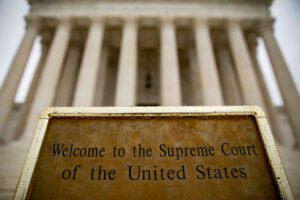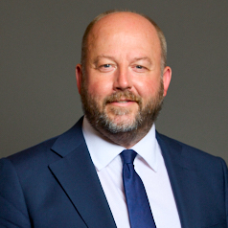Supreme Court Ends Automatic Anonymity for Doctors in Life-Support Cases

The Supreme Court has delivered a landmark ruling that will change the way doctors and medical professionals are identified in legal disputes concerning the withdrawal of life-support for terminally ill children. This decision marks a significant shift in the balance between privacy and public interest in such sensitive cases.
High-profile cases like those of Charlie Gard and Alfie Evans have previously spotlighted the intense legal conflicts between National Health Service (NHS) staff advocating for the withdrawal of life-support from terminally ill children and parents seeking alternative treatments. Historically, family courts have granted anonymity to doctors in these cases, effectively restricting parents from publicly sharing their stories and perspectives.
The new ruling arises from a case initiated by Rashid and Aliya Abbasi, alongside Lanre Haastrup, with backing from the Christian Legal Centre. The Abbasis, both medical professionals, described their daughter Zainab’s treatment environment as “toxic,” alleging deceit and pressure from clinical staff. Tensions escalated to the point where Rashid Abbasi was arrested at his daughter’s bedside.
Lanre Haastrup’s case involved his son Isaiah, who suffered brain damage attributed to medical negligence. Despite the hospital acknowledging its responsibility and compensating Haastrup, it successfully sought court approval to discontinue Isaiah’s life-support, contrary to parental wishes.
The Supreme Court emphasized that public hospital treatment is of legitimate public interest and that hospital staff qualify as public figures. As such, the court stated that “the limits of acceptable criticism are wider than in the case of private individuals”. To maintain anonymity, doctors must now demonstrate “compelling evidence” of facing a “real and continuing threat of a serious nature”.
Reflecting on the verdict, Dr. Rashid Abbasi expressed his shock at his colleagues’ conduct during his daughter’s critical illness, stating, “As a senior doctor myself, it was a shock for me to see the behaviour of some of my colleagues when my little daughter’s life was in their hands.” He also noted, “We were brutally silenced both before and after Zainab’s death. Now, after six years of fighting in courts, we are finally allowed to tell our story.”
Lanre Haastrup shared his harrowing experience, recounting the prolonged legal battles with the NHS. “For the past seven years, we were banned by the court order from even telling our side of the story,” he said. “It is astonishing to what lengths the NHS has gone, taking us through every level of the judicial system several times over, first to end Isaiah’s life and then to silence the truth about his death.”
Andrea Williams, CEO of the Christian Legal Centre, welcomed the judgment as a triumph for transparency. She remarked, “I shudder to think how many other families, perhaps with similarly shocking experiences, may have been successfully silenced because they did not have the strength or resources to resist.” Her organization supported the Abbasi and Haastrup families through their legal challenges.
This article was originally written by www.christiantoday.com






